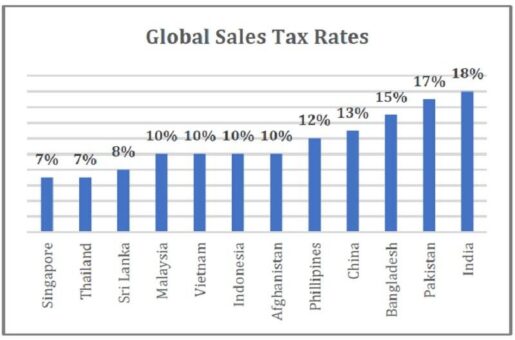KARACHI: The Federal Board of Revenue (FBR) has been proposed to notify rules for computation of capital gain on disposal of securities for insurance companies.
Overseas Investors Chamber of Commerce and Industry (OICCI) in its proposals for budget 2022/2023, said that as institutional investors, insurance companies are very important participants in the financial market, especially in the capital market.
READ MORE: FBR urged to align corporate tax rate for banks
But unfortunately there is no rules exist for computation of capital gain on disposal of Securities for insurance companies as Rule 13E for computation of capital gain on disposal of securities is for Companies that fall under section 37A of Income Tax Ordinance, 2001.
“Rules 13D for computation of Capital gain on disposal of securities under Section 37 A should also be applicable on Fourth Schedule of the Income tax ordinance, 2001,” it recommended.
READ MORE: OICCI suggests duty cut on locally manufactured cars
The OICCI also pointed out personal Lines / micro insurance products of Insurance Companies should be exempted from Federal Excise Duty.
“The insurance related exemptions provided in Table II of the Third Schedule of the Federal Excise Duty Act 2005 should include the following:
3) Marine insurance for export, 4) Life insurance, 5) Health insurance, 6) Crop Insurance, 7) Livestock insurance, 8) Personal accident Insurance, 9) Travel Insurance, and 10) Home property/ Household Insurance.”
READ MORE: Return filing be made mandatory for account holders
It further noted that through Finance supplementary (Second Amendment) Bill, 2019, a proviso was inserted in section 37A, which states that losses sustained during the tax year 2019 and onwards on the disposal of securities chargeable to tax under the above section if not fully set off during the year, would be allowed to carry forward to the next year and subsequent two tax years, to be offset against capital gain earned in those years chargeable to tax under Fourth schedule of the Ordinance.
READ MORE: Unjustified audit notices annoy taxpayers
As the amendments in the supplementary Bill will not be effective for Insurance Companies unless the said amendments will be made in the Fourth Schedule to the Income Tax Ordinance 2000,
It proposed that similar amendments should be made in the Fourth Schedule by inserting new Clause 6C.




